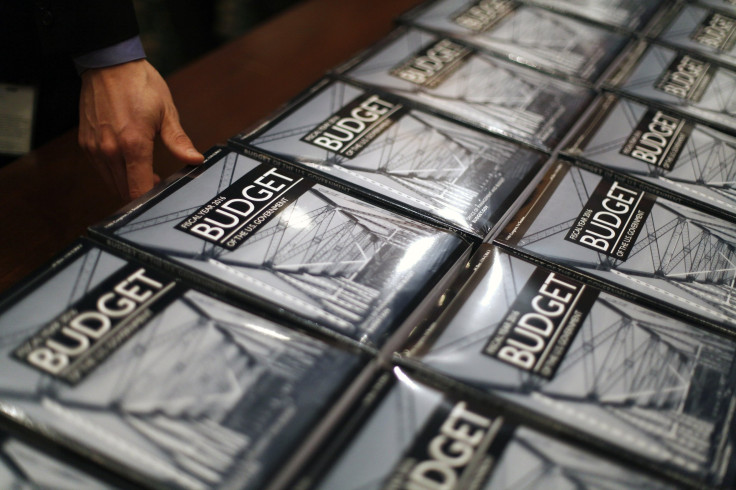Obama Budget Proposal FY2016 Calls For Boosting US Clean Energy Funding, Climate Change Initiatives

President Barack Obama is proposing to significantly boost U.S. funding for clean energy and climate change initiatives in fiscal year 2016. The president’s budget request, unveiled Monday, seeks billions of dollars for the solar and wind energy sectors and to help states prepare for rising sea levels, extreme weather events, severe drought and other climate impacts. The budget also proposes slashing tax incentives for oil and gas companies and supports policies to reduce the use of carbon-emitting coal plants.
Obama’s budget request “makes climate action a priority,” Stan Meiburg, acting deputy administration for the Environmental Protect Agency, said on a Monday press call. “Climate change is one of the greatest economic and public health challenges of our time, and the most costly thing we could do is nothing.”
The president’s budget would launch a $4 billion fund to encourage states to make faster and deeper reductions in carbon emissions from power plants. Under Obama’s proposed Clean Power Plan, states will be required to cut emissions by a certain percentage. States that pledge to exceed those targets could get extra federal money to invest in technology and infrastructure related to curbing emissions, Janet McCabe, acting assistant administrator of the EPA’s clean air office, told reporters.
Obama’s plan also proposes $7.4 billion for clean energy projects, up from the $6.9 billion Obama proposed for fiscal 2015 and over the $6.5 billion enacted by Congress for this year. Part of that money includes extending key renewable energy incentives that the industry says are critical for allowing newer technologies to compete with conventional fossil fuels. The budget would permanently extend a 30 percent investment tax credit for solar systems, which is set to expire at the end of 2016. It would also permanently reinstate a production tax credit for wind farm operators that lapsed at the end of 2013. The tax incentives would cost the government about $31.5 billion over the course of a decade.
Many of the president’s climate proposals face substantial hurdles in the Republican-controlled Congress. GOP leaders have stridently opposed Obama’s Clean Power Plan, which critics say will raise states’ electricity costs and make it harder for U.S. businesses and manufacturers to operate. Conservative lawmakers have traditionally opposed extending the solar and wind energy tax credits, and in recent years they've fought to reduce federal support for clean energy research.
“The administration has a lot of work to do to convince both Congress and the public that these sorts of expenditures are [worth making],” said Joshua Zive, senior counsel at Bracewell & Giuliani in Washington, D.C.
He said Obama’s “audacious call” for spending $1.29 billion on international climate initiatives could prove particularly hard for policymakers to swallow. Of that pile of money, about $500 million would go to the United Nations-run Green Climate Fund, which will aid developing countries in reducing emissions and building resiliency to climate impacts. Obama has pledged to eventually provide $3 billion for the fund.
“Given the political dynamics on Capitol Hill right now, its importance is as much symbolic as it is practical,” Zive said of the fiscal 2016 budget request. “It gives you an eye into what this administration’s priorities are for the coming year, even if the actual funding proposals are not enacted by Congress.”
The American Petroleum Institute, the oil and natural gas industry’s main lobbyist, immediately pushed back against Obama’s proposal. The group claims the plan would slap nearly $95 billion in additional taxes on oil and gas producers by repealing existing tax credits and increasing production costs in other arenas.
“The United States is now the No. 1 producer of oil and natural gas in the world. Tax increases would jeopardize America’s competitiveness, as it would discourage future investment,” Jack Gerard, API’s president and chief executive, said in a statement. “We need policies that will encourage investment, and higher taxes are not the answer.”
The Obama administration argued Monday that costs associated with increased greenhouse gas emissions and climate change effects are far greater than any economic pain the U.S. would suffer in transitioning to a cleaner economy. According to the budget request, the federal government has incurred more than $300 billion in direct costs in the last decade due to extreme weather and fire alone.
“The world’s best scientists are telling us that our activities are changing the climate, and if we do not act forcefully, we’ll continue to see rising oceans, longer, hotter heat waves, dangerous droughts and floods, and massive disruptions that can trigger greater migration, conflict, and hunger around the globe,” Obama said in his budget message. “The significant costs to inaction on climate change hit the federal government’s bottom line directly, as worsening climate impacts create government liabilities. "
© Copyright IBTimes 2024. All rights reserved.





















